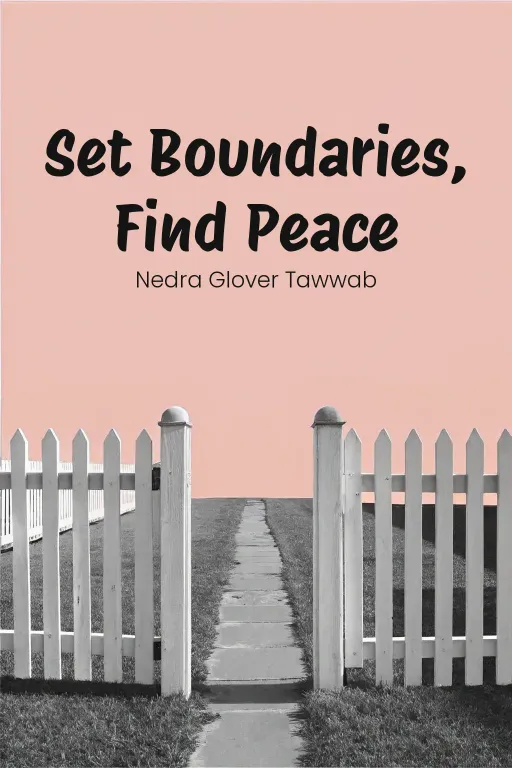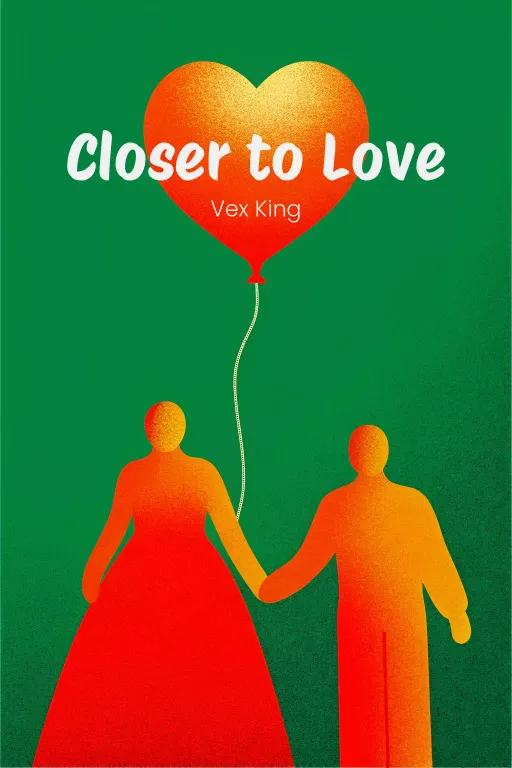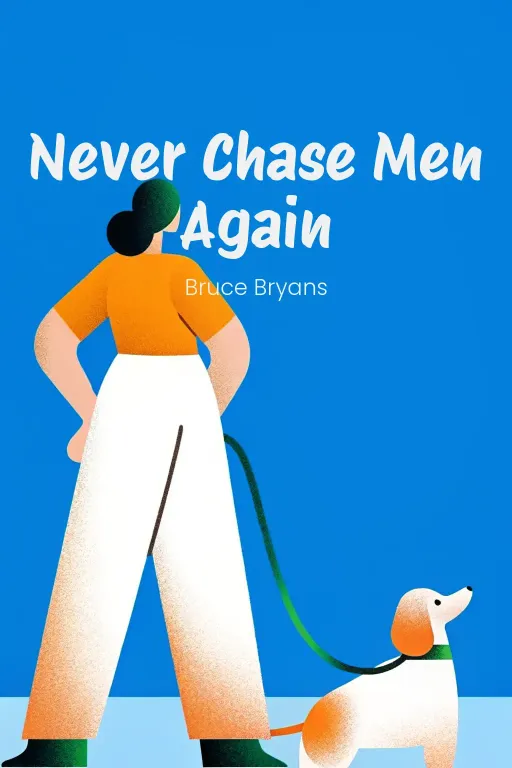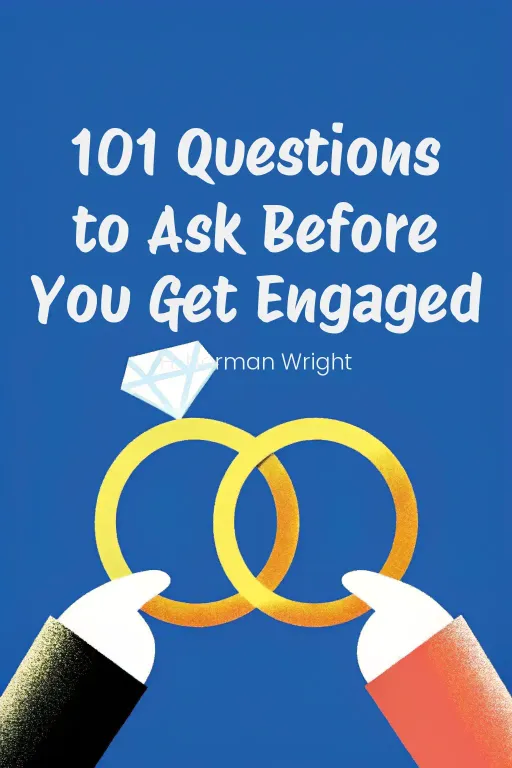
Love's Blueprint: Build a Lasting Relationship
Podcast by The Mindful Minute with Autumn and Rachel
Love's Blueprint: Build a Lasting Relationship
Part 1
Autumn: Hey everyone, welcome back! Today we're diving into a biggie: Just how well should you “really” know someone before you get engaged? Rachel: You know, I'd argue you should know them better than you know your Wi-Fi password. Though, seriously, isn't it a little wild that we might spend more time researching a new gadget than we do understanding the person we're about to commit our lives to? If love is blind, shouldn’t we be asking a “few” more questions before taking the leap? Just a thought. Autumn: Absolutely! And that's exactly why we're talking about “101 Questions to Ask Before You Get Engaged” by H. Norman Wright. It’s not just a book, it’s like a roadmap for really understanding your partner beyond just the surface-level stuff. These questions really dig deep – from core values and family relationships to even financial habits, helping couples uncover the layers of who they are, both as individuals and as a couple. Rachel: So, it's like… hacking into each other’s emotional hard drives? Is that what we're going for here? Autumn: In a way, yes! And today, we're breaking this down into three key areas. First, we are going to discuss how to ask the right questions to really understand your partner – and yourself! Secondly, mastering the dance of compatibility, including conflict resolution and really aligning emotionally together. Rachel: Right, and third, mapping out that shared future. Because let's face it, a relationship without at least “some” kind of plan is like trying to build a house without a blueprint. I'm no architect, but I'm pretty sure the roof is going to leak! Autumn: Exactly! So, let's dive into what it really takes to create a love that not only survives, but actually thrives.
The Importance of Communication and Self-Reflection
Part 2
Autumn: Okay, so picking up where we left off, let’s dive into the real meat of building a strong relationship: communication and self-reflection. We're not just talking about textbook ideals here, but rather practical tools that couples can use to see if they're truly compatible before making serious commitments. Rachel: Communication and self-reflection, huh? So, is this where we realize that those marathon Netflix sessions don’t exactly qualify as “quality bonding time”? Autumn: Well, not exactly, though you’re not totally off base. Effective communication, according to Wright, isn’t just about talking; it’s about asking those difficult questions that bring real clarity. Think of it like peeling an onion, layer by layer. The more you ask, the more you’ll uncover about your partner's values, their quirks, and yes, even those potential red flags. Rachel: Right, the hard questions. So, is this where we ask, “How do you take your coffee?” or “Pineapple on pizza, yay or nay?” I mean, crucial intel, obviously. Autumn: Those are important in their own way, but I'm talking about questions that push you to “really” dig deeper. Imagine asking, “What does your ideal family life look like?” or “What do you think is the biggest challenge in a marriage?” These kinds of questions force you to look beyond the honeymoon phase and tackle topics that might be tough, but super important. Rachel: Got it. Substance, not fluff. But I gotta ask, doesn't this feel a bit like a job interview? Doesn’t it kill the romance? Like, "Honey, can we pause the hand-holding to discuss your five-year conflict resolution strategy?" Autumn: I see your point, but honestly, avoiding these topics because they seem “unromantic” can cause more damage in the long run. Take Sam and Rachel, for example. They skipped the financial talks before getting married and later found out their money habits were totally at odds. Rachel was all about saving and long-term planning, while Sam, well, he lived in the moment—and his credit card debt showed it. The result? Resentment and months of arguments that could have been avoided if they'd just talked it through beforehand. Rachel: Ouch. Sounds less like financial planning and more like a financial disaster waiting to happen. But why do you think people avoid these conversations in the first place? Autumn: Fear, mostly. Fear of making things feel too serious too fast. Or maybe fear that those uncomfortable truths will ruin what feels like a perfect situation. Plus, sometimes folks just don't know what to ask. Wright’s book helps with this, making sure you hit all the important areas—from money and parenting to those hopes and fears. Rachel: Okay, fair enough. But doesn't all this assume people actually “know” themselves before jumping into these conversations? Autumn: Exactly, Rachel! And that’s why self-reflection is just as essential as communication. You can't really understand your partner without understanding your own values, your own baggage, and what you “really” want. Wright calls this a foundational step. After all, how can you be authentic in a relationship if you don't know who you are? Rachel: So, it’s like handing someone a map when you have no clue where you are to begin with. Okay, give us some real-world examples here. How does someone actually “do” this “self-reflection” thing? Autumn: It can take many forms. Let’s look at Sarah’s story. She grew up in a family where conflict was never openly addressed; it was always swept under the rug. So, when she got into her first serious relationship, she did the same thing, avoiding disagreements at all costs. Not surprisingly, those unresolved issues piled up and eventually broke the relationship. Rachel: So, she walks away thinking, "Why do all my relationships fail?" while ignoring the common denominator: her own patterns? Autumn: Precisely. The game-changer for Sarah was when she decided to face this head-on through therapy and honest self-reflection. She started to see where her avoidance came from and actively worked on changing it. By the time she met her next partner, Jonathan, she was ready to handle conflicts head-on from the start, setting a much stronger foundation. Rachel: That's a good point, I think a lot of us could use that level of introspection. But for self-reflection to really work, doesn’t it require, like, radical honesty? I mean, who “wants” to confront their own flaws? Autumn: Radical honesty is key, and yes, it can be transformative. Wright suggests asking yourself questions like, “What aspects of my upbringing do I want to bring into my marriage, and what do I want to leave behind?” Thinking about your family history can reveal patterns—both good and bad—that you might be unconsciously carrying into your own relationship. Rachel: Okay, let me play devil's advocate here. What about those couples who just… wing it? They skip all these deep dives and seem to be doing just fine. Are we overcomplicating this? Autumn: Well, on the surface, maybe. But Wright argues that skipping self-reflection and real communication has hidden costs. Look at Anna and Mike. They thought love was enough, but they soon faced years of stress over money. Mike had been supporting his extended family without even talking to Anna about it, which felt like a betrayal to her. If they'd had honest talks about money and cultural expectations before getting married, they might have avoided years of strain. Rachel: So basically, love isn't a cure-all—it's a starting point. And skipping the groundwork is like building a house and hoping duct tape will hold it all together. Autumn: Spot on! And to build on that analogy, Wright has practical tools to help couples prepare. For example, he suggests "structured question sessions" where couples set aside dedicated time to answer in-depth questions about everything from parenting to handling conflict. Rachel: Sounds intense! Do people actually find that useful? Autumn: Absolutely! Think of it as a pre-marital blueprint. Wright also encourages couples to “test” their relationship in different situations. How does your partner handle stress on vacation, or during a crisis? These experiences give you a glimpse into their core personality and how they deal with challenges. Rachel: Let me guess—if your partner completely loses it over a delayed flight, maybe it’s time to re-evaluate that five-year plan? Autumn: Exactly. And for individuals, journaling can be incredibly powerful. It helps you unpack your own thoughts and feelings, making it easier to communicate them to your partner. All these tools—guided conversations, self-reflection, situational testing—they work together to create clarity and reduce the risks, both for individuals and for their relationship. Rachel: So, what you're saying is that communication isn’t just a "nice-to-have," it’s the engine. And self-reflection is like the maintenance you do before hitting the road. Without both, you’re basically on a highway to disaster. Autumn: Exactly! By combining these practices—open dialogue and genuine self-awareness—we create the conditions for partnerships that are not just loving, but also resilient and truly aligned.
Assessing Compatibility and Conflict Resolution
Part 3
Autumn: Okay, so building on that, the next really important thing is how all this translates into figuring out if you're compatible and how you deal with conflict. It's about connecting those personal insights with actual skills you can use in a relationship, so you can handle tough times together. We need to dig into what compatibility really means – it's more than just liking the same movies or having cute couple pics online – and how to approach fights in a way that actually makes your relationship stronger, you know? Rachel: Wait a second, compatibility and conflict resolution? So, we're going from "Do we both love tacos?" to "How do we not kill each other over whose turn it is to clean the bathroom?" That's kind of a wide jump, isn't it? Autumn: It is a big range, but they're both super important. Compatibility isn't just about what you have in common; it's about lining up on the big stuff, like your core values, your day-to-day habits, and how you tackle problems as a team. And conflicts? Well, those are going to happen in any relationship. It's not the argument itself that's the problem, it's how you handle it. Rachel: So, you're saying if your idea of communication is basically a shouting match in a school cafeteria, you might be in trouble? Autumn: Exactly! Think about red flags – those early warning signs that point to bigger issues down the road. Things like avoiding tough conversations, not taking your feelings seriously, or having totally different beliefs about life. Spotting those early on can save you a lot of pain later. Rachel: Right, so it's like fixing that tiny crack in the wall before the whole thing collapses. But when do these red flags usually pop up? Is it after a few dates, or after a few years when everyone stops trying to be someone they are not? Autumn: Honestly, it really depends. Some show up pretty quickly if you're paying attention, and others can stay hidden until the relationship is really tested. Take Brittany and Aaron. Remember their story? Rachel: Ugh, the couple where Aaron was hiding his financial problems the whole time? Yeah. That red flag should have had a giant flashing sign, but they still didn't deal with it. Autumn: Exactly. Brittany was all about careful planning, and Aaron was hiding his past debts. But the main thing we can learn from them isn't just spotting the problem but how they ended up working through it. They had guided conversations in therapy, which helped them deal with Aaron's fears and Brittany's annoyance. It turned something that could have broken them up into something that made them stronger. Rachel: Okay, that's encouraging. But let's talk about the emotional side of things. If compatibility is the foundation, then emotions are like the mortar, right? What happens when a couple is just on totally different emotional pages? Autumn: Good question. Emotional connection is about empathy, trust, and understanding how your partner shows and receives love. If a couple isn't aligned on that, it can cause frustration and even feeling alone. Like Lily and Ben – they just had totally different ways of showing affection. Rachel: Oh, yeah – he wanted constant compliments and reassurance, and she was all about doing things for him. Classic case of one person thinking, "I did all the chores, why aren't you happy?" while the other one's saying, "Why haven't you told me you care?" Autumn: Exactly. Wright says that learning each other's love language can bridge that gap. Lily and Ben didn't have to change who they were; they just had to adjust how they showed their feelings. Once they understood each other better, they went from clashing to really complementing each other. Rachel: That’s a good point. So, feelings are important, obviously. But let’s talk about conflict – the good stuff. Because everyone fights. How do you stop a small tiff about who drank the last of the coffee from turning into a full-blown war? Autumn: It starts with understanding different conflict styles. Some people, like Mia in the Alex and Mia story, avoid confrontation altogether, while others, like Alex, go all in. When you put those two styles together, one person usually shuts down, and the other feels like they're not being heard. Rachel: Like a truck running over an ant. Not ideal. Autumn: Exactly. But couples can change those dynamics with some conscious effort. Alex and Mia, for example, did some premarital counseling, which helped them see their differences and agree on some simple rules for fighting: taking a break to cool down, speaking calmly, and being clear about what they were disagreeing about. The result? Fewer arguments, more teamwork. Rachel: So, it's not about trying to fix each other but about managing the whole dynamic. No one’s perfect, but you can put up some guardrails to keep things from going off the rails. Autumn: Precisely. Wright suggests practical tools, like the Speaker-Listener model, where one person speaks while the other repeats back what they heard before responding. It forces you to be clear and reduces defensiveness, so both people feel heard. Rachel: Okay, that's actually pretty smart. But here's where I get skeptical: do couples really need all these tools, or is this just for couples who are already in trouble? If things seem fine, why overcomplicate it? Autumn: That's a fair question, but conflict is inevitable. Healthy couples use these tools proactively to make their bond stronger before problems come up. Think of it like working out – you're getting in shape for the tough times, even when things are good. Rachel: Alright, you've convinced me. So, we've talked about spotting red flags early, lining up emotionally, and strategies for handling disagreements. Anything else couples should know before saying "I do?" Autumn: Yes—regular check-ins. Wright suggests setting aside time each week or month to really think about the relationship. It's a chance to appreciate the progress you've made, deal with frustrations, and adjust course before small issues become big problems. Rachel: Like a relationship tune-up. Makes sense. Autumn: Exactly. By putting all these things together – self-awareness, emotional understanding, and conflict resolution – couples can build a really solid and strong relationship that can handle anything life throws at them.
Shared Vision and Continuous Growth
Part 4
Autumn: Once you’ve figured out if you're compatible, the last piece of the puzzle is how you, as a couple, envision your future together and actually map it out . Building this shared vision is something that unfolds over a lifetime . It’s about setting goals together, growing together, and “really” committing to being intentional about your partnership . Rachel: So, we've gone from figuring out what each person brings to the table, to designing the table we want to share . Sounds ambitious . Where does a couple even begin with something like this? Autumn: It starts with aligning your aspirations – things like family plans, career goals, financial strategies, even just shared values . Think of it as drawing up a collaborative roadmap for your life together . Wright says that couples who define these things early on are much better equipped to adapt and grow together, instead of just drifting apart . Rachel: Okay, but here’s the million-dollar question: what happens when those dream roadmaps don’t match up? Say one person sees a future with kids and a house in the suburbs, and the other is laser-focused on climbing the corporate ladder . Autumn: That’s a “really” common challenge, and the answer will always be open, honest communication . Take James and Lia, for example . Their visions for the future initially clashed . She dreamed of having a big family, whereas he'd always pictured himself as a business owner, and he worried that having lots of kids would mean sacrificing his career goals . Rachel: Sounds like they were headed straight for a major conflict . So what happened then? Did someone have to abandon their dream, or did they end up calling it quits? Autumn: Actually, neither . Through counseling, they found a middle ground . They decided to focus on James’s business for the first few years of their marriage, and then revisit their family plans once they felt more financially secure . It was a compromise that allowed them to honor both of their desires while treating their future as a joint project . Rachel: Okay, I’ll admit that’s a pretty good solution . But let me play devil's advocate here: what if you just can’t compromise on something huge, like having children? That's a non-negotiable for a lot of people . Autumn: You’re right, things like parenting or major lifestyle choices can be complete deal-breakers . The earlier you have those conversations, the better . That way, you don’t get blindsided three years down the road . And sometimes, Wright points out, the best thing you can do is realize you aren’t aligned before you make a lifelong commitment . It can be painful, but it prevents even bigger heartbreak later . Rachel: So, basically, avoiding these tough conversations because they're uncomfortable is just setting yourself up for problems later . Autumn: Exactly . Avoiding the issue doesn’t solve anything; it just delays the inevitable . And speaking of things you can't avoid, Wright also points out that no matter how aligned your vision is, life is going to throw you curveballs . So having a shared vision isn’t just about having these grand goals – it’s also about being prepared to face challenges together . Rachel: Right, let’s talk about those curveballs . Life doesn’t exactly pause while you’re perfecting your five-year plan, does it? Autumn: Definitely not! Look at Rachel and Tom . They had a solid financial plan for their wedding and their first year of marriage, and then Tom lost his job . Suddenly, their shared vision was in jeopardy, and their relationship started to show cracks under the pressure . Rachel: Ouch . I’m guessing those cracks weren’t going to fix themselves? Autumn: Nope . They ended up going to counseling to help them weather the storm . With some professional guidance, Rachel started freelancing to stabilize their income while Tom focused on his job search . And just as importantly, they made time to talk about their fears – Rachel’s anxiety about financial instability and Tom’s feelings of inadequacy . That openness helped them build not just a financial plan, but emotional resilience too . Rachel: So, instead of letting that challenge sink them, they used it to strengthen their partnership . But what about couples who don’t believe in seeking outside help? I know people who think they can handle everything themselves . Autumn: That's a pretty common attitude . But Wright stresses that ongoing education—whether it’s through counseling, workshops, or even just reading books—is essential for long-term success . It’s not just about solving problems when they arise; it’s about building the skills you need to keep adapting and growing together . Rachel: So, more teamwork and more tools in your relationship toolkit? Autumn: Exactly . Think about Emily and Jack . While they were in premarital counseling, they discovered that they had completely different conflict styles . Emily avoided confrontation, while Jack wanted to hash things out right away . Over time, those differences had left both of them feeling like they just weren’t being heard . A counselor helped them develop some strategies, like scheduling “checkpoints” for difficult conversations and using reflective listening to reduce tension . Rachel: Reflective listening? Isn’t that where you repeat back what your partner says to show that you’re actually listening? Sounds simple, but I bet it’s harder than it looks . Autumn: It is, but it can be incredibly effective . And it got Emily and Jack on a path of continuous learning . They started going to workshops on love languages and personal growth, making it a habit to invest in their relationship . They didn’t stop at “good enough"; they kept building . Rachel: Alright, so tools and strategies clearly help . But what about having real-life relationship role models? Can couples learn by watching others who've already been there? Autumn: Absolutely . Sarah and Nathan, for instance, were “really” inspired by her grandparents’ 60-year marriage . They saw how just small gestures, like holding hands during tense moments or quietly sharing responsibilities, set the tone for a healthy partnership . By asking for advice, they learned “really” practical tips for building their own dynamic, like focusing on non-verbal connection and celebrating small wins . Rachel: So modeling isn’t just about copying what someone does—it’s about understanding the “why” behind their actions and then applying those lessons to your own relationship . Makes sense . Autumn: Exactly . Whether you’re learning from role models, actively seeking out new knowledge, or navigating challenges together, it all boils down to one thing: intentionality . Building a partnership that grows and evolves requires conscious effort, not just at the beginning, but throughout the entire journey . That shared vision isn’t static; it’s dynamic, just like life itself . Rachel: Alright, so to sum it all up, it’s just not enough to fall in love . You also have to plan how you're going to stay in love .
Conclusion
Part 5
Autumn: So, just to wrap up, we’ve covered those three core ideas from H. Norman Wright’s book. First, it's about really good communication and digging deep into yourselves, to understand your values, spot any red flags early, and just get crystal clear on your emotions. Second, it’s honestly assessing how well you click together and learning how to handle conflict in a healthy way. And finally, it’s about creating that shared vision for the future, so you can grow together on purpose and face whatever life throws at you. Rachel: Right, so the takeaway here? Love’s not just romantic walks on the beach or, you know, gazing into each other's eyes. It’s about the sometimes uncomfortable, but necessary conversations, knowing yourself and your partner inside and out, and actually planning out the future you both want. Feelings are important, sure, but a bit of planning definitely won't hurt. Autumn: Absolutely! Relationships “really” thrive when you put in the conscious effort, that’s the key. So, don’t just fantasize about the perfect relationship—actively work towards building it. Ask those tough questions, think hard about who you are, and “really” invest in each other. Because the strongest relationships? They're built, not just accidentally found. Rachel: Agreed. And look, if you’re not both willing to put in the work, to pick up the hammer and start building, maybe it’s time to reconsider the whole project. Better to take a step back now than to end up with a house built on a foundation of sand, right?









